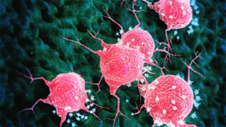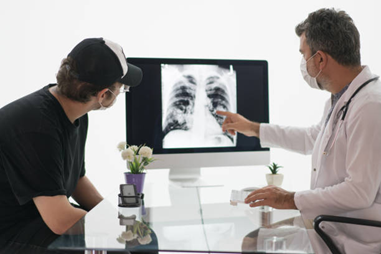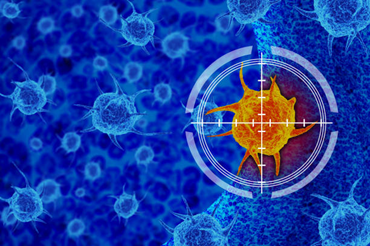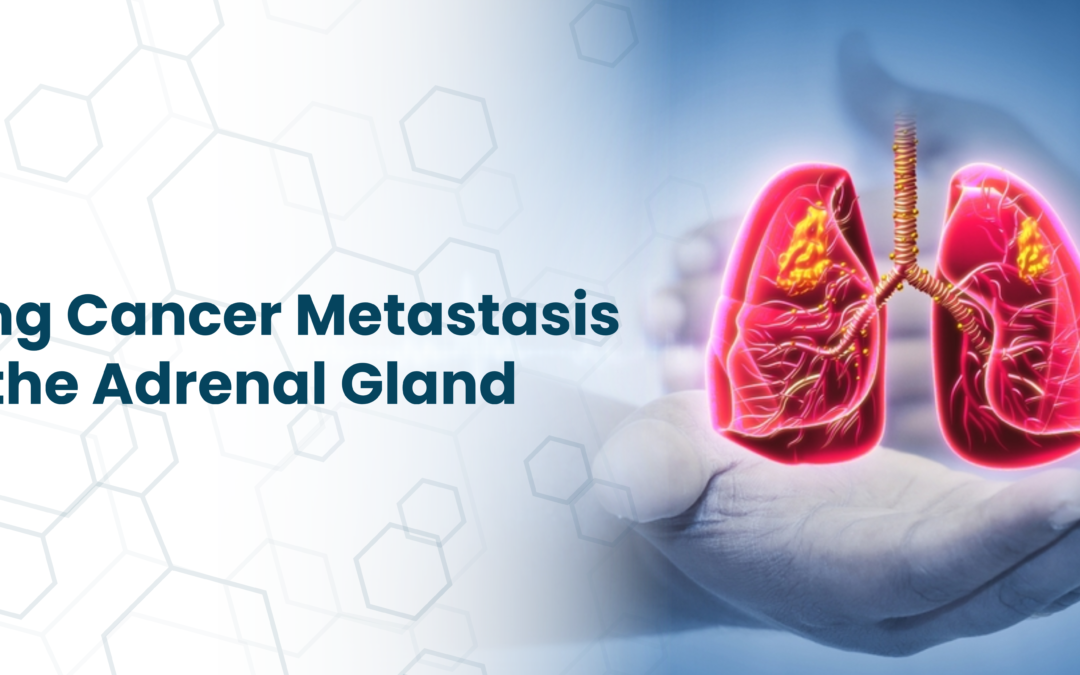A cancer diagnosis is life-altering, impacting not only the patient but also their loved ones. Lung cancer, one of the most common and deadliest cancers worldwide, takes this challenge a step further when it spreads beyond its origin. Metastasis, or the spread of cancer to other organs, is a sign of advanced disease (stage IV), with the adrenal glands being a frequent site.
Statistics reveal that lung cancer is responsible for over 2.2 million cases globally each year, with approximately 30-40% of cases experiencing adrenal metastasis at some stage. For patients, this adds another layer of complexity and fear.
Dr. Manish Kumar, a seasoned medical oncologist in Bangalore, shares:
“While metastasis is a challenging stage of cancer, advancements in diagnostic techniques and treatments provide hope. Recognizing the symptoms early and addressing them can significantly impact patient outcomes.”
But how does lung cancer spread, and what makes adrenal metastasis significant? Let’s delve deeper.
Understanding Lung Cancer Metastasis

Adrenal metastasis often goes undetected in its early stages due to the lack of obvious symptoms. However, its presence can influence the course of treatment and prognosis. Studies suggest that adrenal metastases occur in about 30% of non-small cell lung cancer (NSCLC) cases.
Dr. Kumar, a renowned lung cancer specialist in Bangalore, adds:
“Understanding how cancer spreads helps us tailor treatments better. With lung cancer metastasis to the adrenal gland, a multidisciplinary approach becomes essential for improving quality of life.”
Have you noticed persistent changes in your health that seem unexplained? Don’t wait—consult a qualified cancer doctor to address your concerns.
Are you curious about how this spread affects symptoms? Let’s uncover more.
Symptoms of Adrenal Metastasis

Adrenal metastasis may remain asymptomatic for a long time, making it difficult to detect without imaging tests. Some symptoms that might arise include:
Adrenal Insufficiency:
When over 90% of the adrenal glands are compromised, cortisol production may decrease, leading to symptoms such as:
- Weight loss
- Nausea and vomiting
- Abdominal discomfort
- Weakness and fatigue
- Lethargy
- Fever
- Confusion
- Electrolyte imbalances
Bleeding:
Hemorrhaging into the abdomen due to the tumor can occur in some cases.
Blood Sugar Variations:
The adrenal glands’ role in regulating blood sugar may be affected, causing fluctuations.
Blood Pressure Issues:
Excess aldosterone secretion by the tumor can result in elevated blood pressure.
Excess Estrogen Production:
Tumors producing estrogen can lead to early puberty in girls, with breast development and the onset of menstruation. In boys, it may cause breast enlargement.
Dr. Manish Kumar, a sought-after doctor for Lung cancer treatment in Bangalore, adds:
“Adrenal metastasis is often a silent condition, with symptoms like persistent abdominal pain and fatigue being easily mistaken for other health issues, delaying diagnosis. Recognizing these signs early can significantly improve treatment outcomes.”
Curious about how doctors unravel the symptoms of adrenal metastasis? Let’s find out!
How is Adrenal Metastasis Diagnosed?
Diagnosing adrenal metastasis requires advanced imaging techniques:
CT Scans or MRI:
These imaging tools provide high-resolution images of the adrenal glands, enabling doctors to detect abnormalities, such as tumors or growths. They also help assess the size and spread of the metastasis.

PET-CT Scan:
A PET scan combined with a CT scan not only highlights active cancer cells in the adrenal gland but also offers a complete view of cancer’s spread across the body.
Dr. Manish Kumar, a distinguished medical oncologist in Bangalore, notes:
“Accurate diagnosis is the cornerstone of effective treatment. Advanced imaging diagnostic tools like PET-CT scans are indispensable in confirming adrenal metastasis and planning precise treatments.”
Do you undergo regular screenings? Early detection is critical for managing advanced cancer stages. Speak with an experienced oncologist today.
Treatment Options for Adrenal Metastasis
Treatment for adrenal metastasis depends on the patient’s overall health, the extent of cancer spread, and the size and location of the adrenal tumors. Common treatment options for stage IV cancer include:
Systemic Therapies:

Chemotherapy, targeted therapy, or immunotherapy is often used to control the primary cancer and its spread.
Palliative Care:

For advanced cases, symptom management and quality-of-life improvement are prioritized.
“Combining treatments often yields the best results,” says Dr. Kumar. “A well-rounded approach, including systemic therapies and palliative care, can significantly improve the patients quality of life.”
Conclusion
Understanding lung cancer metastasis to the adrenal gland is crucial for timely intervention. With ongoing advancements in medical research, patients now have access to innovative treatments that not only prolong life but also enhance its quality.
Dr. Manish Kumar, an accomplished medical oncologist, emphasizes:
“Cancer care today is about more than just extending life; it’s about preserving its quality. By detecting and treating adrenal metastasis early, we can offer patients a better path forward.”
Do you or a loved one suspect adrenal metastasis or need guidance on managing lung cancer? Reach out to an experienced cancer specialist today and take a step toward clarity and control.
Frequently Asked Questions
Can adrenal metastasis occur without symptoms?
Can adrenal metastasis affect hormone levels?
Yes, adrenal metastasis can disrupt hormone production, leading to symptoms like abnormal blood pressure, electrolyte imbalances, and fatigue.
How does immunotherapy help in treating adrenal metastasis?
How often should someone with lung cancer undergo adrenal screening?
Regular screenings are vital for advanced lung cancer patients. Your oncologist will determine the frequency based on your stage, treatment plan, and risk factors.
https://www.adrenal.com/adrenal-metastasis/overview
Disclaimer: The information shared in this content is for educational purposes only and not for promotional use.

